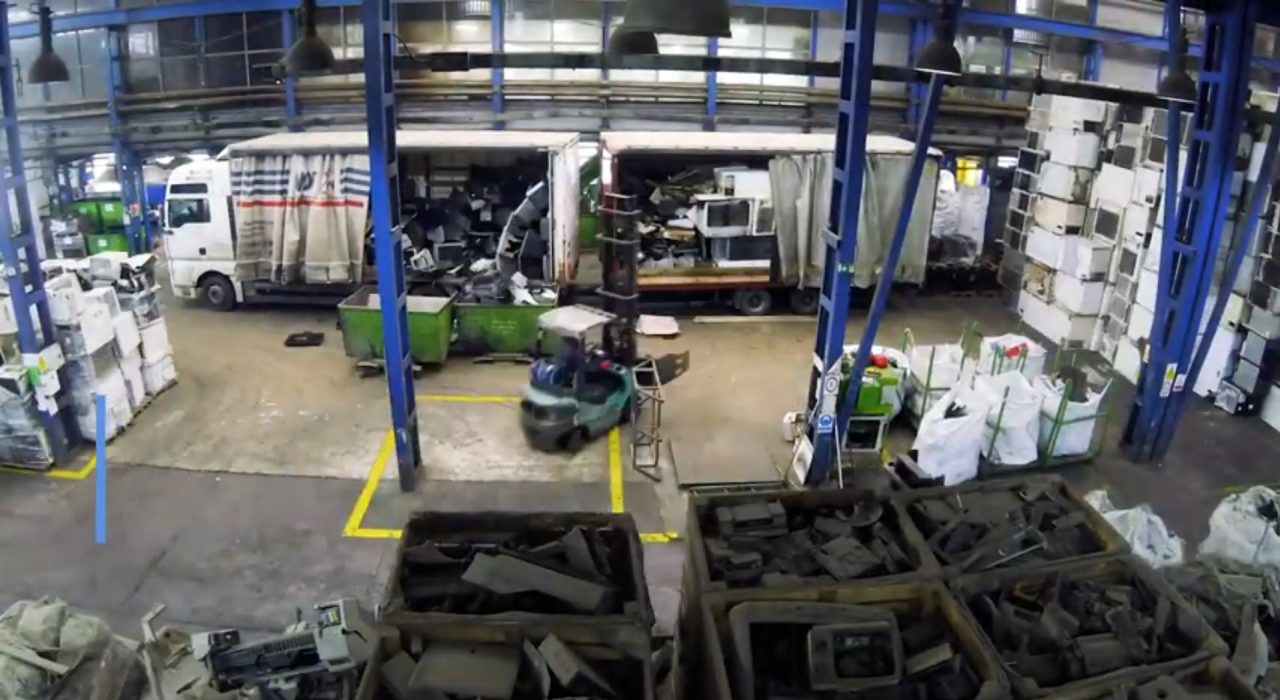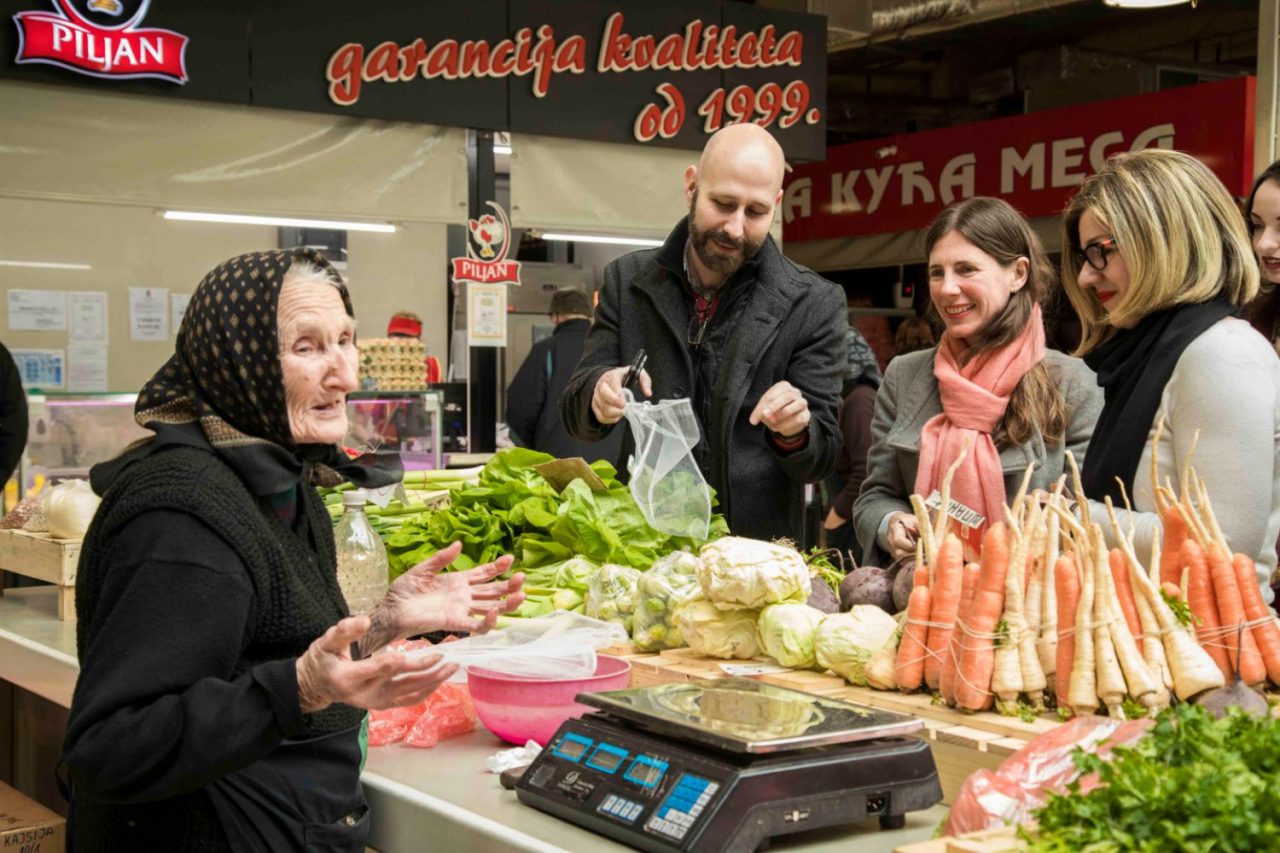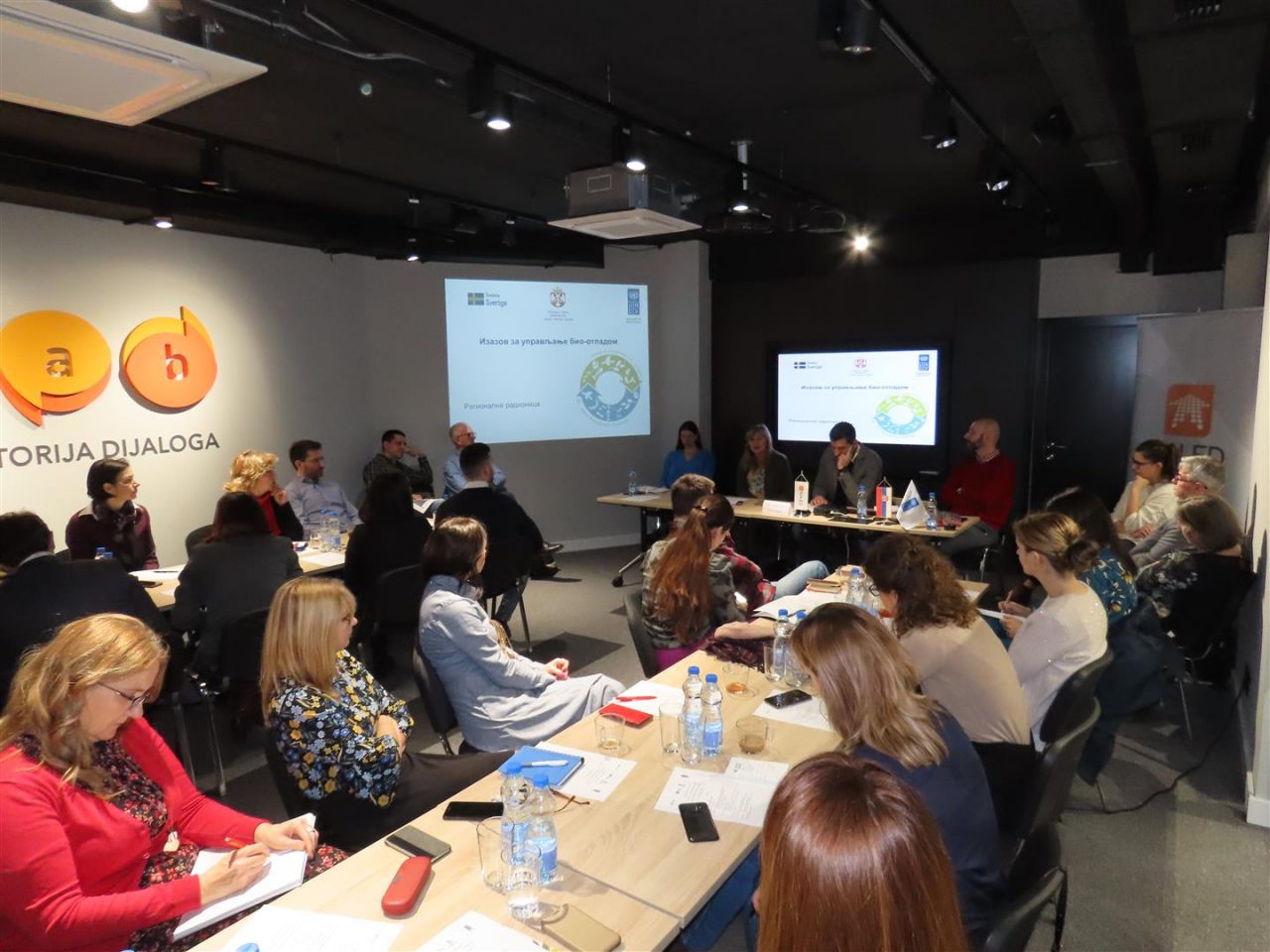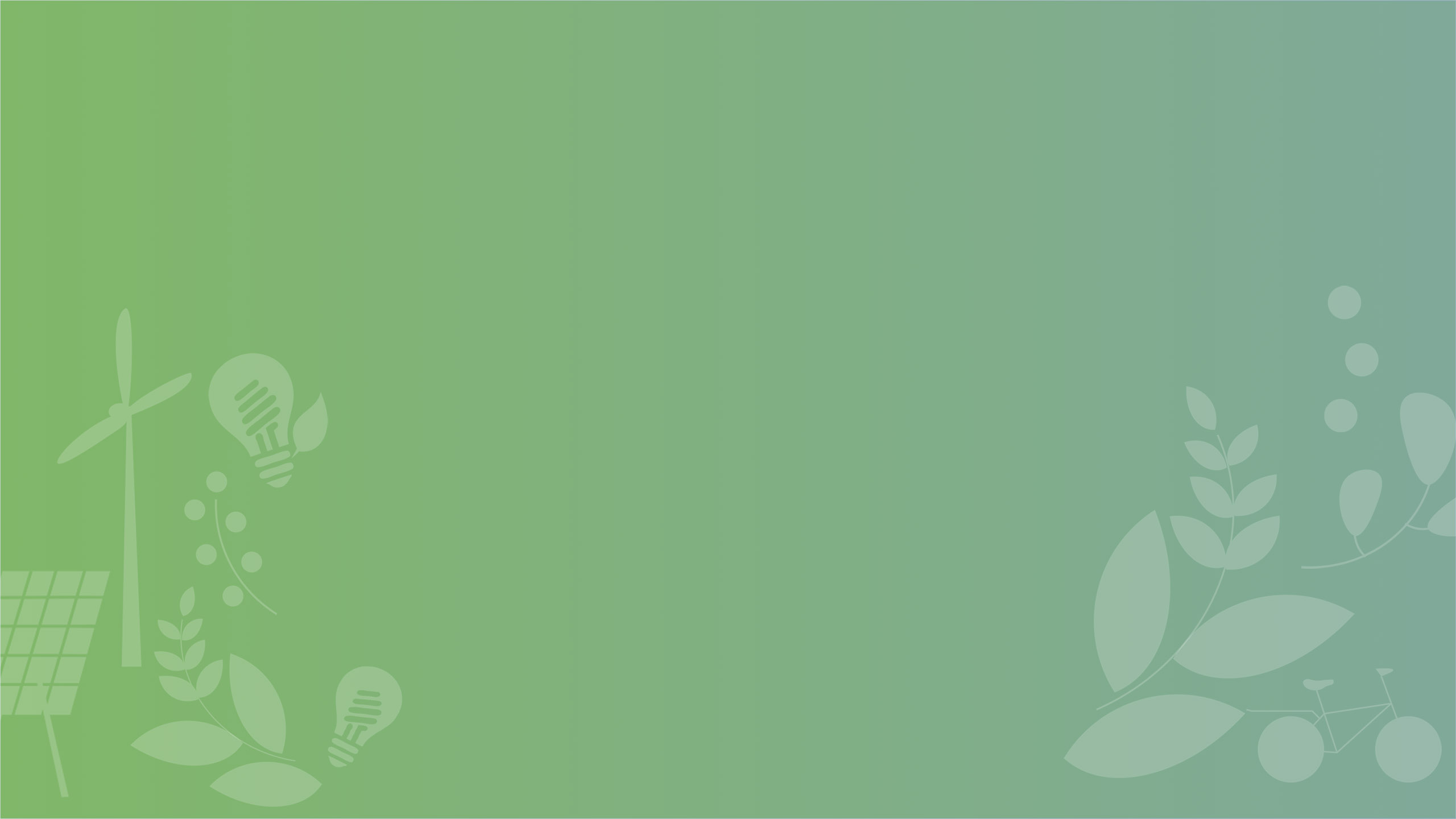-
Mar 26 2020 Innovation Call “Action for Climate Positive Change” in Western Balkans
The Fund for Innovation and Technology Development of Republic of North Macedonia, with support of United Nations Development Programme (UNDP), has announced Innovation Call on climate resilience “O2 Challenge II – ACTION FOR CLIMATE POSITIVE CHANGE“.
The call is intended for micro, small and medium-sized companies seeking to develop an innovative product, service or process, independently or in cooperation with an institution carrying out a higher education or research activity, or another company and/or association from the country or the region of the Western Balkans (WB6), including Serbia.
Application deadline is April 15th 2020, 23:59 pm.
You can find more info here http://www.fitr.mk/%D0%BE2eng/#toggle-id-2
-
Mar 13 2020 New product from old refrigerators – recycling for waste reduction and environmental protection
There are around 20 million electronic and electric devices in the Serbian market. With the growth of demand and the price drop, the older, obsolete devices are being disposed of. If they end up in a landfill, electronic and electric devices become hazardous waste. They release dangerous substances such as mercury, lead and cadmium in water and soil, whereas they emit the greenhouse gases (GHG) into the air, having an impact on climate change. A discarded refrigerator, for instance, emits the same amount of CO2 into the air as an airplane that has travelled almost halfway across the globe (10,000 kilometres).
However, electronic and electric devices can be recycled—in such a way that it results in brand new, usable and environment-friendly products. This is exactly the business case of Jugo-Impex E.E.R, a company from Niš. One phone call is enough so that electronic or electric waste doesn’t go to the landfill, but to their recycling plant instead. Their waste-collecting team will come to your home address and pick up the waste for free. They have managed to collect 4,000 tons out of 10,000 tons of refrigerators that are being disposed of in Serbia every year. When recycled properly, all the parts of one’s fridge can be reusable.
“One recycled fridge gives us 20% of plastic, 63% of iron, 6% of coloured metals, 10% of polyurethane powder obtained by processing polyurethane foam, and around 1% of Freon and oil,” explains Nenad Todorović, maintenance engineer for plant and equipment at Jugo-Impex.
“Polyurethane foam is used as insulation in cooling devices, and it contains Freon. F-gases are powerful greenhouse gases with a high global warming potential and strong impact on climate change. A proper recycling procedure separates Freon from the polyurethane foam, and we convert hazardous waste into a completely safe polyurethane powder which we use to make a new product with high absorption powers. This is the first product of this kind made 100% out of recycled materials in the region, and it is used to absorb oil spills and stains,” says Goran Zdravković, maintenance engineer for plant and equipment at Jugo-Impex.
Proper recycling of refrigerators prevents GHG emissions, while the production of absorbers gives us a useful product that is safe for the environment.
In Jugo-Impex, they believe that in the next two years the recycling of refrigerators will contribute to removing around 10 tons of Freon, which will result in a decrease of CO2 emissions by 16.5 tons per year.
Waste recycling contributes to environmental protection because this process allows for proper collection, transport, treatment and disposal of hazardous waste. From the business point of view, the materials obtained through recycling are significantly cheaper than the same materials obtained through classic industrial processes, whereas the circular production models can also create new jobs.
Increasing the circularity of consumption and production is one of the global Sustainable Development Goals (SDG 12), and it also contributes to Serbia’s progress toward the EU accession (Chapter 27, on environment and climate change).
The production of absorbers from fridge polyurethane foam was one of out of five best and most innovative climate smart solutions which received co-financing for implementation within the project Climate Smart Urban Development Challenge. The project is implemented by United Nations Development Program (UNDP) in partnership with the Ministry of Environmental Protection, and with the financial support of the Global Environment Fund (GEF).
By clicking on this video, you can learn more about the process.
-
Mar 10 2020 Bio-waste Management Challenge Call officially open for applications
Today we launched the “Bio-Waste Management Challenge Call” at the Palilula Market, in partnership with the Ministry of Environmental Protection, and with the support of the Swedish International Development Agency (SIDA).
The purpose of this Challenge Call for proposals is to identify and support the implementation of innovative solutions for management of biodegradable waste, particularly food waste and kitchen waste, as well as green waste from parks and gardens. Such solutions will contribute to reducing emissions of greenhouse gasses (GHG) and increase the use of renewable energy sources.
The Challenge Call was officially opened by the Ambassador of the Kingdom of Sweden to the Republic of Serbia, H.E: Jan Lundin, the assistant minister of environmental protection Biljana Filipović-Đušić, and UNDP Resident Representative to Serbia Francine Pickup.
The Ambassador of the Kingdom of Sweden to the Republic of Serbia, H.E: Jan Lundin states that initiatives like this one, which encourage innovative solutions, are important for the environment, but equally for the Serbian economy, as they will create new jobs.
„Within the support that Sweden is providing to Serbia in order to accelerate its accession to the European Union, we are assisting Serbia to improve its system of waste management. Across the European Union and Sweden, there are many examples of best practice and successful business solutions to manage bio-waste. The project will allow us to exchange ideas, learn from each other“, stated Lundin.
The assistant minister of environmental protection Biljana Filipović-Đušić spoke about the activities that Serbia has undertaken to address the bio-waste management issues.
„We are developing a new Waste Management Strategy for the period 2020 to 2025, which is aligned with the five new EU Circular Economy Directives. It is expected to be adopted this year. Re-use of biodegradable waste is in line with the process of implementing circular economy in Serbia, following the best practice in EU countries and the EU acquis. This project will facilitate the establishment of infrastructure for bio-waste management, primarily through its collection and separation from other waste flows. “
She also mentioned that the EU countries have set the goal for 2035, and Serbia should aspire to it also – to recycle 65 per cent of waste, and to reduce the amount of waste being landfilled to less than 10 per cent.
„With the support of the Kingdom of Sweden and in cooperation with the Ministry of Environmental Protection, UNDP is assisting Serbia, through improved management of biodegradable waste, to reduce greenhouse gasses emissions and pollution, create new jobs and save resources. I hope that thanks to this Challenge Call we will collect many great proposals and that jointly we will contribute to collect and treat greater volumes of this type of waste, for the benefit of the economy, the environment and the citizens of Serbia,“ said Francine Pickup, UNDP Resident Representative to Serbia.
Better management of biodegradable waste contributes to achieving a number of the UN Sustainable Development Goals: ending poverty and hunger, ensuring good health, providing affordable and clean energy, sustainable consumption and production patterns, building sustainable cities and communities and preventing climate change, added Pickup.
According to the Food and Agriculture Organisation (FAO) data, one third of all food produced globally is wasted, and this quantity would be sufficient to feed almost a billion hungry people globally.
According to available data, 900,000 tons of bio-degradable waste is collected in Serbia from food industry waste, restaurants, supermarkets and individual households, along with the green waste from gardens and parks. About 70 per cent of that waste ends up in non-sanitary landfills, causing damage to the environment and increasing GHG emissions. Only 1 per cent of biodegradable waste is being collected and processed, and the loss of wasted resources costs Serbia approximately 50 million euros annually.
Bio-Waste Management Challenge Call is open for all applicants until 22 April 2020. Innovative ideas for more efficient management of food waste and green communal waste can be submitted by local governments, public enterprises, scientific research institutions and civil society organisations. The selected teams will work on their solutions with professional mentors, and the best five will receive co-financing in order to implement their ideas in practice. They will also participate in study tours to Sweden, where they will hear first-hand about the best European examples.
The project „Climate Smart Bio-Waste Management Challenge” and the public call for innovative solutions is initiated by the UNDP, in cooperation with the Ministry of Environmental Protection and financial support of the SIDA. For more information visit: http://74zy3a1.undp.org.rs/en/application/


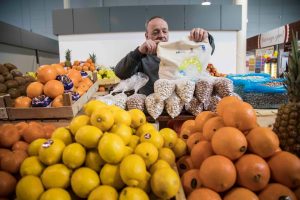

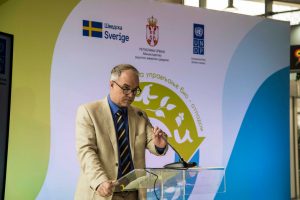
-
Mar 04 2020 Regional Workshops had been held for the Public Call for the “Climate Smart Bio – Waste Management Challenge”
Public Call for the “Climate Smart Bio – Waste Challenge” had been presented at regional workshops in Niš, Novi Sad, Čačak and Belgrade. Representatives of private companies, public utilities, local governments, research and scientific institutions and non-governmental sector had an opportunity to get detail information related to Public Call, which will be open on March 10 th .
– Our idea is to involve the private sector as much as possible in solving the problem of biodegradable waste, so this type of waste does not end up in landfills and decompose into methane, a very potent greenhouse gas – said Miroslav Tadic, Portfolio Manager for Climate Change in UNDP Serbia. He added that the main goal of the project is to involve the private sector in tackling climate change through innovative, technical and technological solutions and business models.
One of the results of the project, according to Tadić, should be the introduction of the circular economy principles into bio-waste management in Serbia.
Radmila Šerović, Head of the Department for Waste Management at Ministry of the Environmental Protection announced that the new Waste Management Strategy will be available in the Serbian language by the end of February and that it will revise the goals of waste management related to bio- waste.
– In new Strategy this type of waste takes a significant place, although we do not have much information on the quantities and types of bio-waste generated in Serbia. Following EU directives, we have envisaged strategic measures to improve the management of this type of waste. Also, we will identify all producers of biodegradable waste – explained Šerović.
She said that the “Climate Smart Bio – Waste Challenge” project will facilitate the establishment of bio-waste management infrastructure, primarily its collection, separation from other types of waste and treatment, "so that even a kilo of bio-waste does not end up in landfills." As she explained, there are a small number of operators involved in bio-waste treatment in Serbia, which can be explained by the fact that this activity is not profitable.
– We have made the least progress in bio-waste management due to lack of infrastructure for waste collection and treatment. More than 60 companies have permits for collection, transportation and treatment of bio-waste, but they are not all working. The investments are highe, the industry is not profitable and that is the reason why we have not made any progress. Serbia should have at least one biogas plant in every of 26 regions. Without such plants and composting facilities, we will not be able to meet our goals. We need big investments and infrastructure based on the development of the regions – said Šerović, adding that it is a practice everywhere in the world that waste producer pays for its disposal, based on „the polluter pays“ principle.
Project Coordinator Ana Seke explained that the project has two sub-challenges: food waste and kitchen waste and green waste from parks and gardens. She also outlined the project phases and requirements that participants have to meet.
– Cities and municipalities, public utility and private companies, research and scientific institutions and civil society organizations can apply for the public call. Through project acceleration phase, participants will receive mentoring and expert support from local and Swedish experts through workshops and trainings as well as study visits, participation in conferences, public events and fairs. The five most mature projects will receive co-financing for implementation – said Seke.
A total of 900,000 tonnes of biodegradable waste is produced annually in Serbia, according to data provided by the Regulatory Assistant at National Alliance for Local Economic Development (NALED) Đurđija Petrović.The Law on Waste Management does not define obligations for waste separation, which is the reason why more than 500,000 tonnes end up at municipal landfills.
– Mixed kitchen waste from households is usually dumped into a landfill, or used in agriculture and as food for animals. Business entities have to handle over this waste to operators, pay for that services and therefore some avoid this obligation. From 2011 to 2018 only 30 companies reported to Environmental Protection Agency on the quantities of bio-waste handled over to operators although it is their responsibility – said Petrovic.
Representatives of Environmental Protection Alliance of NALED proposed, as a potential measure to improve the regulations, the adoption of a Rulebook on kitchen waste management for facilities that produce large quantities of meals per day to separate this type of waste and handle it over to the operator.
The project along with its Innovation Challenge Call is implemented by the United Nations Development Programme (UNDP), with the financial support of the Swedish International Development Agency (Sida) and in close cooperation with the Ministry of Environmental Protection (MoEP).
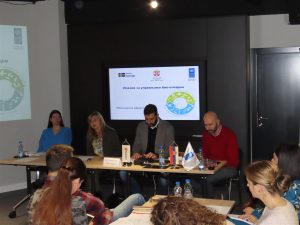
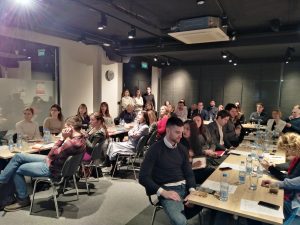
-
Public call for the support for Civil Society Organizations projects of environmental protection
Ministry of Environmental Protection of the Republic of Serbia published Public call for the support for Civil Society Organizations projects of environmental protection in 2020.
The goal of the Public call is to improve the environment protection within nature protection,
environmental entrepreneurship, civic activism, strategic and environmental impact assessment, air pollution and noise protection, climate change (reducing greenhouse gas emissions) and/or adaptation to changing climate conditions.
Deadline for applications is 20th February 2020.
More about Public call you can find on the link.


